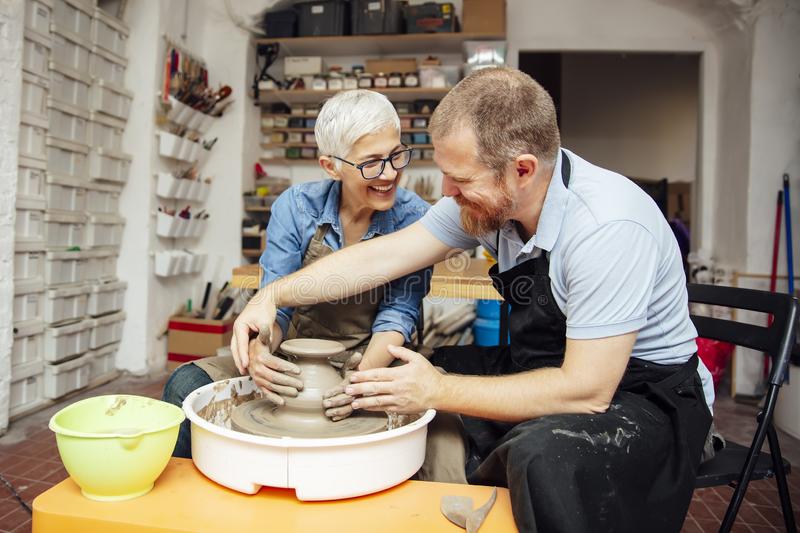Now that is an interesting question. To be honest I’ve never thought about it much until recently. Some teachers may be qualified in the eyes of society, but are they really? And do you need to have qualifications to teach pottery classes? For many people, it may not matter, after all, isn’t the end result what counts? But I do think it is important to know who you are learning from, if for no other reason than to be able to ask the right questions.
So who teaches at these pottery classes? Well, in my experience, many of them are either run by students or they are one-man shows. Some may have qualified in another area and then gone on to study pottery, or they may be self-taught.
Are they qualified? Well, that depends on your definition of qualification. They are qualified in the sense that they know how to throw a pot, decorate it, and fire it successfully, but I don’t think you can call yourself qualified unless you have earned some kind of degree or certification.
I personally have the highest regard for the potters who have earned degrees in their craft, but I also respect those who are good teachers with years of experience under their belts. It’s not an easy job to teach someone something that you had to learn yourself. So, qualifications are important but they aren’t the only important thing.
As a student of ceramics, I have been taught by students, sole traders, and teachers alike. In fact, it’s probably not even worth writing about because there is no correlation between how qualified you are and how good a teacher you are. It’s really more to do with personality and your willingness to share your knowledge and experience with your students.
But what exactly do I mean by ‘teaching’? Do you teach or do they? And how can you tell if someone is a bad teacher? That’s not so easy, because often the person responsible for the class won’t be present all of the time. Quite often it will just be their staff doing the teaching.
It isn’t always easy to tell if someone is a good teacher or not, but let me try to give you some pointers that might help you decide whether to go ahead with it or not.
Time for the student’s opinion
So, who are these teachers? By far the majority of people I have ever had teach me have been students. This is important to remember when searching for your next class because there are many courses on offer, some of them run by professional potters who teach full-time while others are taught by semi-pros or amateur artists who teach part-time.
There are pros and cons to either situation but let me start with the ones that I don’t like. I know that in today’s world it is hard to survive on pottery alone, and many people teach part-time to supplement their income, but one thing I cannot stand in a teacher is inconsistency. When you start a course do they take it seriously or not? Do they show up for classes or not? If the answer is ‘not very often, I tend to think they are not serious about teaching.
On the other hand, if the class has a good atmosphere to it and people get along, then that helps a lot too. They don’t need to be there every week but their presence should be felt once in a while. If they do happen to be there a lot, then that is great too.
One thing I have found in most of the pottery classes that I have been to is the majority of their income comes from selling pots, not teaching classes. This can be a problem because they usually buy their stock-pots out of pocket and if it doesn’t sell, they lose money. So, they are under pressure to come up with ideas that will sell.
This is why you see the same things over and over again in many ceramics classes. This is because it’s what sells best so if you go along to one of these classes, don’t be surprised if you keep seeing the same style pot again and again.
When you are looking for ceramics classes to take, try to find out if the teacher has their own kiln or not. If they do, this is very important because it means that what you learn will be practiced in a real-life situation. Quite often people who teach pottery classes don’t have their own kilns and use a big communal one. This is obviously not a problem if you are going to be using the same one yourself, but I know from experience that it can be frustrating having people make mistakes in front of you too many times without being able to do anything about it.
However, there are some very good teachers out there who don’t have their own kiln. Sometimes, the space to have one is limited so you will see two choices available to you if this is the case. Either hire a kiln for your class or share it with someone else. Some pottery courses can be expensive and sharing a kiln might help lower the cost of your course but remember that not having your own makes it harder for you to get your work fired properly.






